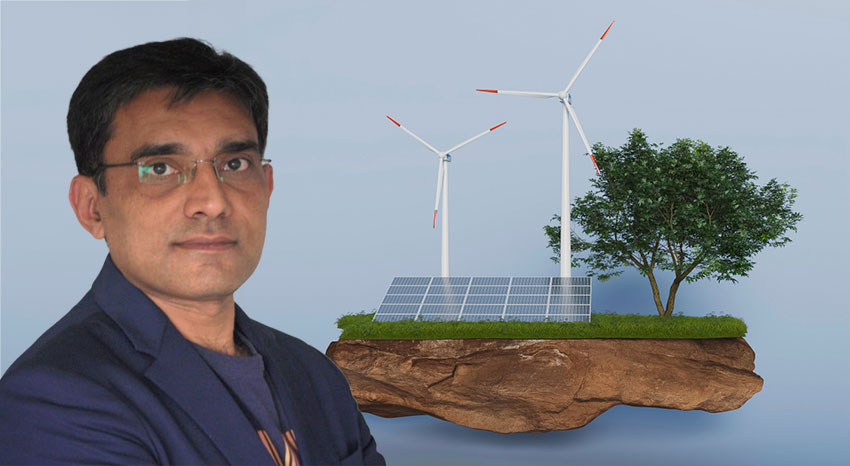
The K J Somaiya Institute of Management organised a Master Class session on ‘Emerging Energy Space’ by Energy Expert Mr Divyesh Desai on 23rd August 2023. The engaging session was attended by Students and Faculty of K J Somaiya Institute of Management, K J Somaiya College of Engineering & S K Somaiya College.
Mr Divyesh Desai holds the experience of working with large energy oil companies like Shell and British Gas over the last twenty-five years in various commercial positions covering strategy, commercial negotiations, M&A, marketing, trading and business development. His expertise lies in effectively managing energy businesses amidst challenging and uncertain conditions, crafting global strategies, conducting international negotiations, formulating commercially viable frameworks, and devising emerging business models to adapt to the realities of climate change.
Speaking about the importance of developing a holistic view, Mr Divyesh emphasised, “No matter what discipline we belong to or specialize in, it is important for us as future change makers that we develop a holistic view of a sector, in terms of its geopolitical, social, environmental and commercial perspective.”
The session provided a comprehensive overview of the rapidly evolving landscape of energy and sustainability, touching upon a range of critical topics. The discussion began with an update on current trends in the energy sector, particularly the dynamics influenced by the Ukraine-Russia war and its subsequent impact on oil prices. This naturally segued into why the concept of sustainability has become a focal point for businesses worldwide. Strategies for reducing dependencies on fossil fuels were explored, shedding light on various global efforts, such as the Kyoto Protocol, the role of the derivatives market, OPEC’s contributions, and the emerging Neo Alignment strategies. The session also delved into the Indian government’s policies in this realm, taking into account the broader implications of consumerism and capitalism, as well as the focus on Environmental, Social, and Governance (ESG) factors. A detailed discussion on Scope 1, 2, and 3 emissions was presented, including various incentivizing techniques designed to reduce carbon emissions and the global landscape of carbon credits. The dialogue also covered the complex relationship between investment in sustainable techniques and the cost of equity. The session concluded with an insightful analysis of how all these elements intersect to influence economic growth, employment, lifestyle, and ultimately, the planet itself.
Two most interesting concepts that I was not aware of and is definitely going to take-away from this session are:
1. Hurricane Index futures and options as a way for market participants to hedge against and speculate on the potential financial impact of hurricanes and tropical storms in the United States. These derivatives are designed to provide a mechanism for managing risk associated with hurricane-related events.
2. Garbage gasification is an innovative waste management technology that involves converting organic and combustible materials found in municipal solid waste (MSW) into useful gases such as syngas (synthetic gas) through a high-temperature, low-oxygen process.
He summarized the session by giving us an understanding of how Shell is contributing to a more sustainable environment through its practices and initiatives globally.
Mr Divyesh reiterated, “Life can be better when you not only take responsibility for yourself but for your near & dear ones and your surroundings. Each activity you do has an impact on the environment.”
Report by Arusmita Roy, K J Somaiya Institute of Management






Leave a Reply